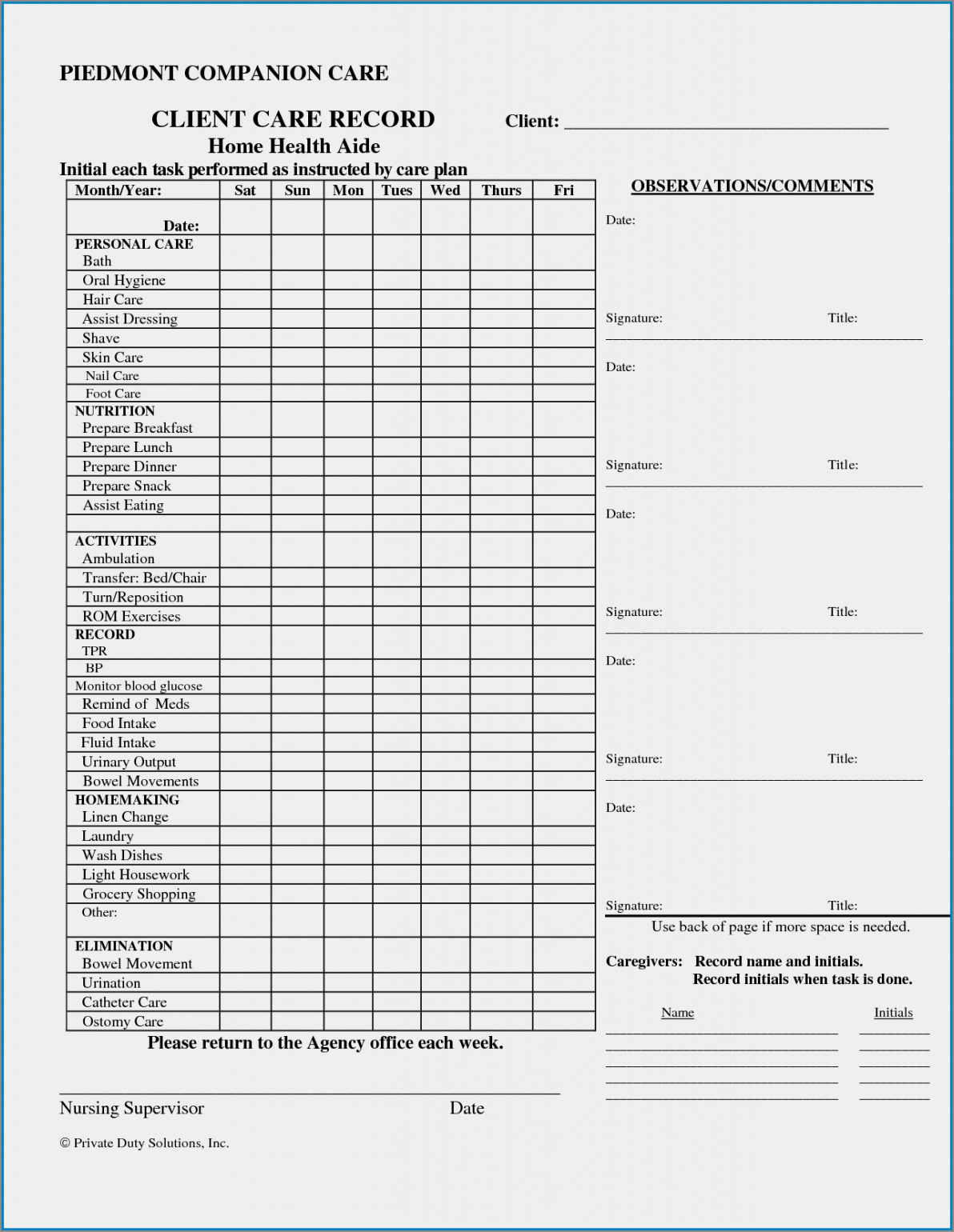Being a caregiver is a demanding and challenging role, but it is also incredibly rewarding. Whether you are caring for an elderly loved one, a person with disabilities, or someone recovering from surgery, having a daily checklist can help ensure that you provide the best care possible.
In this article, we will explore the caregiver daily checklist in detail, offering practical tips and advice to make your caregiving journey smoother and more efficient.
Why is a Caregiver Daily Checklist Important?
When you are responsible for someone’s well-being, it is crucial to have a structured approach to caregiving. A caregiver’s daily checklist serves as a roadmap, ensuring that all essential tasks are completed and no important details are overlooked. By following a checklist, you can provide consistent care, maintain a routine, and stay organized.
A caregiver daily checklist also helps in managing your time effectively. It allows you to prioritize tasks, allocate resources efficiently, and ensure that you have enough time for self-care. Additionally, having a checklist can reduce stress and anxiety, as you can rely on it to guide you through your caregiving responsibilities.
Creating a Caregiver Daily Checklist
Now that we understand the importance of a caregiver daily checklist, let’s explore how to create an effective one. Keep in mind that each caregiver’s checklist will be unique, and tailored to the specific needs of the individual they are caring for. However, certain tasks and considerations apply to most caregiving situations.
1. Personal Care
Personal care tasks are often the most critical aspect of caregiving. This includes helping with bathing, dressing, grooming, and toileting. Your checklist should include specific instructions on how to assist the person you are caring for with these tasks, taking into account any mobility or cognitive limitations they may have.
2. Medication Management
Ensuring that medications are taken correctly and on time is crucial for the well-being of the person you are caring for. Your checklist should include a medication schedule, listing the names of the medications, dosages, and when they need to be administered. It’s important to also note any specific instructions, such as whether medications should be taken with food.
3. Meal Preparation
Proper nutrition is essential for maintaining good health. Your caregiver’s daily checklist should include meal planning and preparation. Consider any dietary restrictions or preferences the person you are caring for may have. Ensure that meals are balanced, nutritious, and appealing. If necessary, consult a dietitian for guidance.
4. Mobility and Exercise
Depending on the person’s condition, mobility and exercise may be an important part of their care routine. Include activities that promote movement, such as gentle stretches or short walks, in your checklist. If the person requires assistive devices, such as a walker or wheelchair, make sure they are easily accessible and in good working condition.
5. Emotional Support and Engagement
Caregiving goes beyond physical tasks. Emotional support and engagement are equally important. Your checklist should include activities that promote social interaction, cognitive stimulation, and emotional well-being. This could include reading aloud, playing games, or simply having conversations about their interests and experiences.
6. Home Safety and Maintenance
Creating a safe and comfortable environment is crucial for the person you are caring for. Your caregiver’s daily checklist should include tasks related to home safety and maintenance. This could include regular cleaning, checking for hazards, and ensuring that assistive devices, such as grab bars or handrails, are in good condition.
7. Communication and Documentation
Effective communication is key when coordinating care with healthcare professionals, other family members, and the person you are caring for. Include a section in your checklist for documenting important information, such as medication changes, doctor’s appointments, and any concerns or observations you have. This documentation will help you track progress and communicate effectively with others involved in the person’s care.
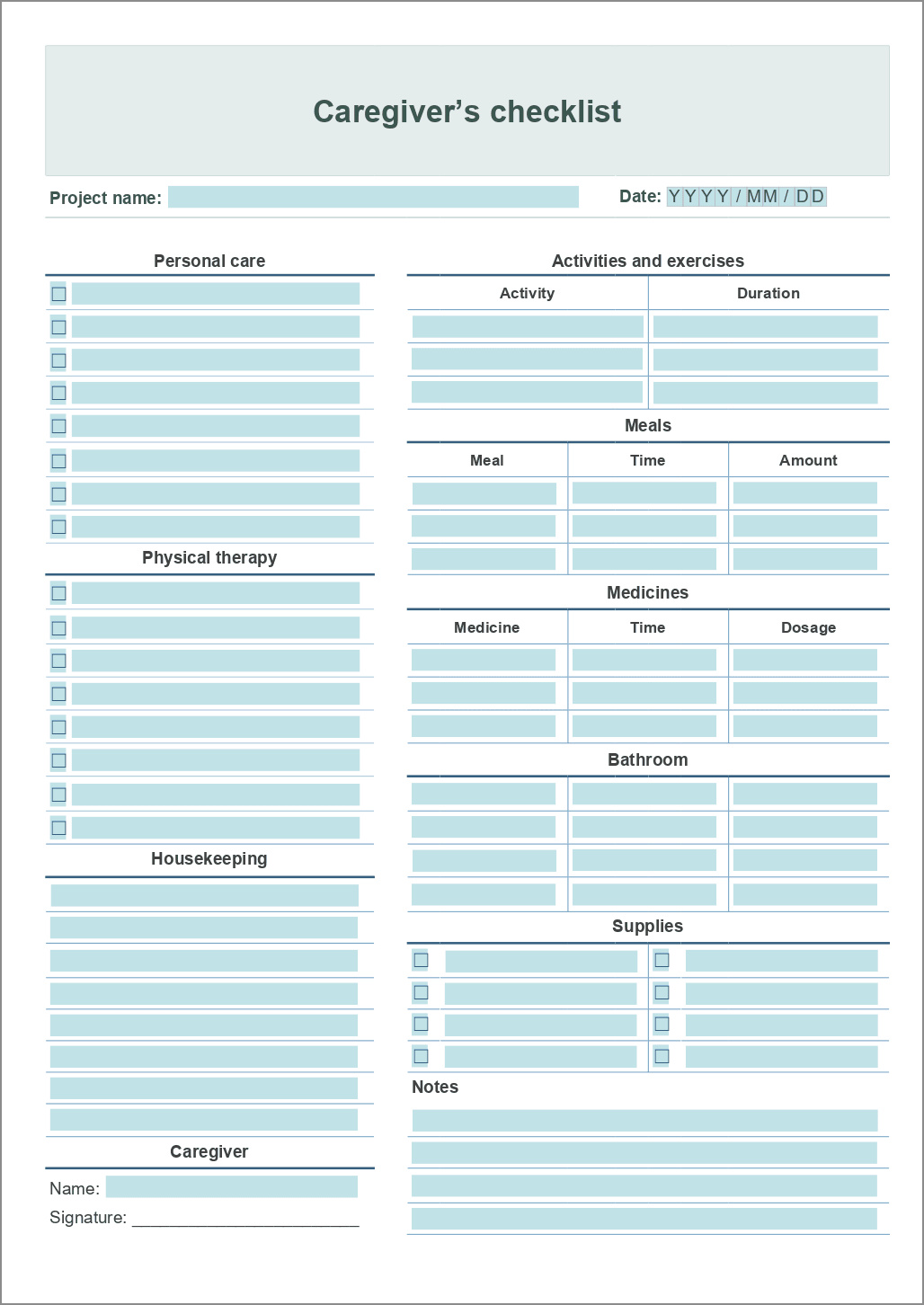
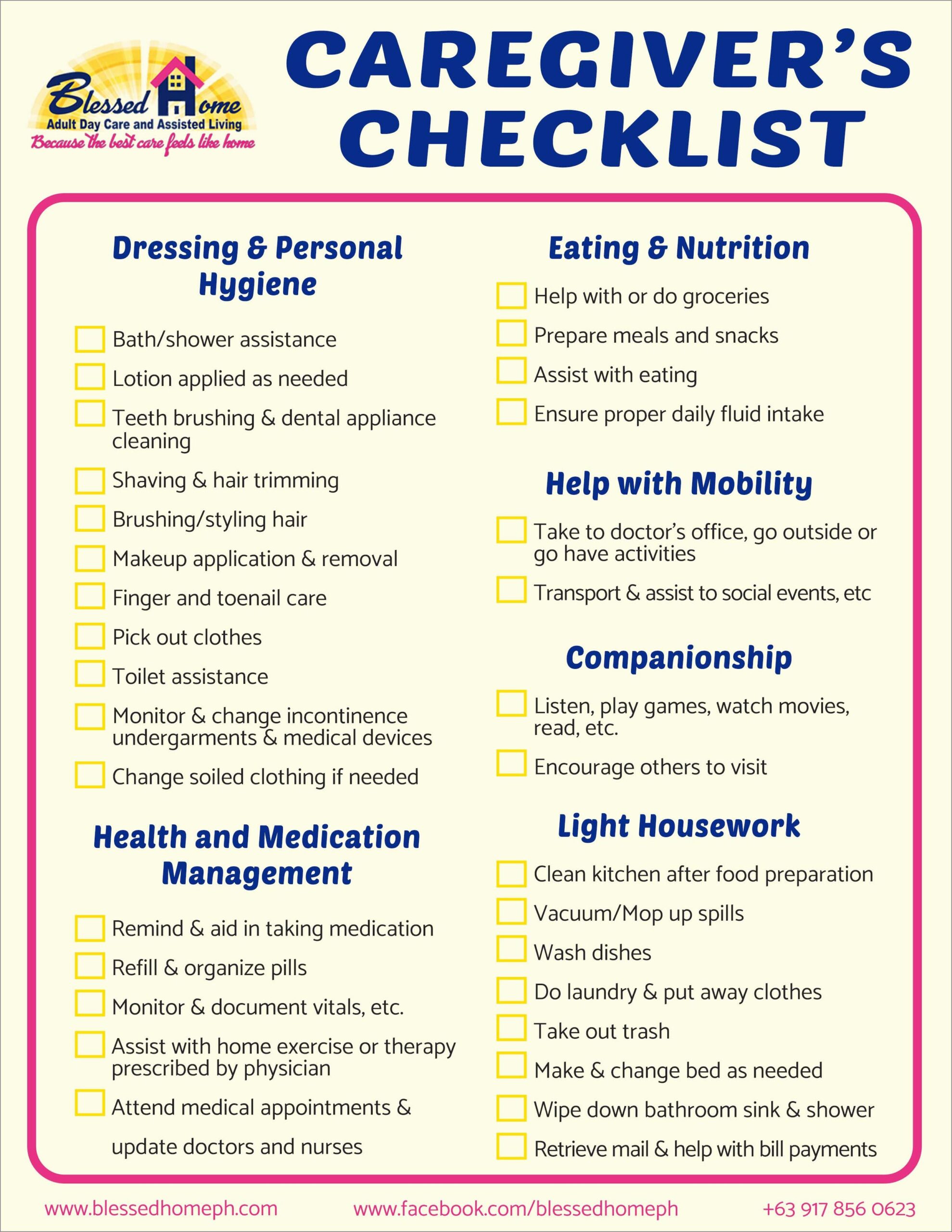
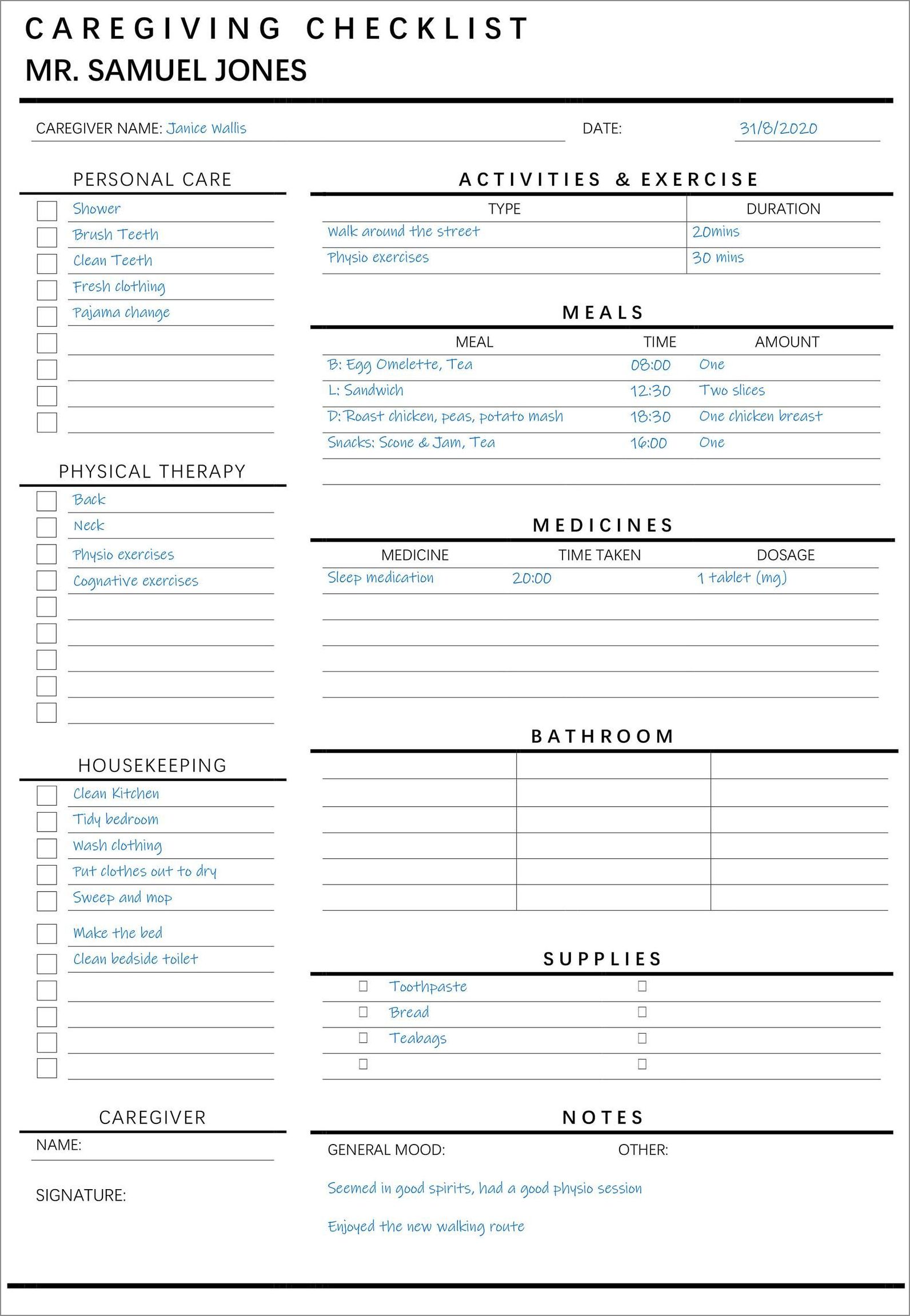
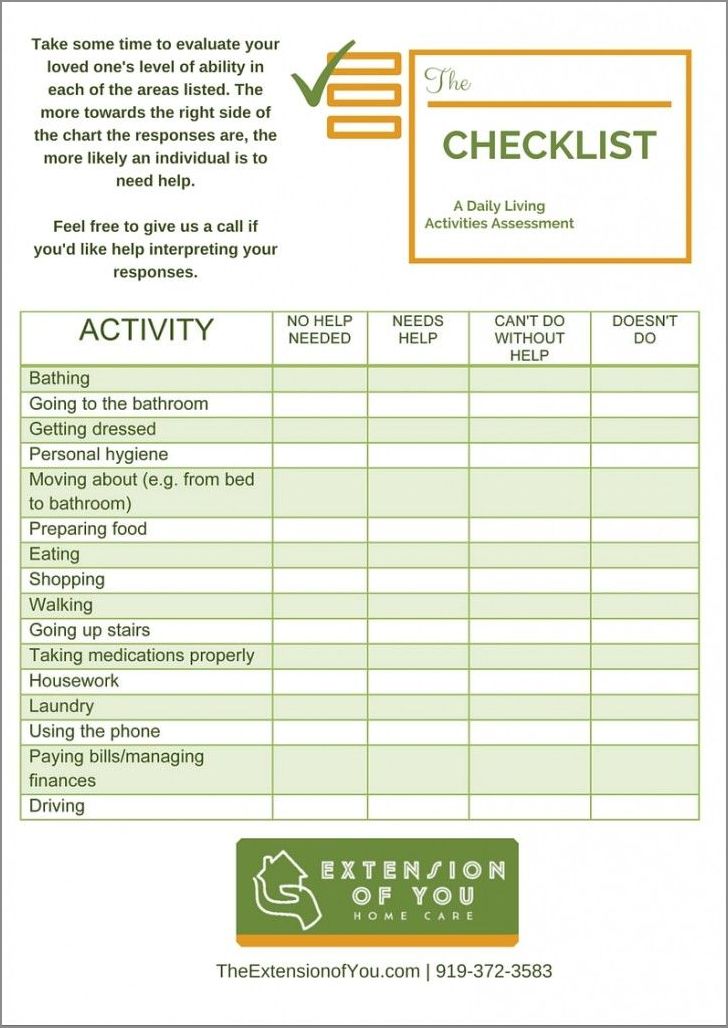
Additional Tips for Caregivers
- Take care of yourself: As a caregiver, it’s essential to prioritize your well-being. Make sure to schedule time for self-care activities, such as exercise, hobbies, and spending time with loved ones.
- Seek support: Don’t hesitate to reach out for help when needed. Joining a support group or seeking professional counseling can provide valuable emotional support and guidance.
- Stay organized: Use tools such as calendars, planners, and smartphone apps to stay organized and keep track of appointments, medication schedules, and important contacts.
- Stay informed: Continuously educate yourself about the person’s condition and any new developments or treatments. This will help you provide the best care possible.
- Be flexible: Remember that caregiving is not always predictable. Be prepared to adapt your daily checklist as needed and embrace flexibility.
- Celebrate small victories: Recognize and celebrate the progress and achievements of the person you are caring for, no matter how small. It will boost their morale and yours too.
In Conclusion
A caregiver daily checklist is an invaluable tool for providing excellent care. It ensures that all essential tasks are completed, promotes organization and efficiency, and helps maintain a routine. By tailoring your checklist to the specific needs of the person you are caring for and following best practices, you can make the caregiving journey smoother and more fulfilling. Remember to take care of yourself along the way and seek support when needed. Your dedication and compassion as a caregiver make a significant difference in someone’s life.
Caregiver Daily Checklist Template – Download
